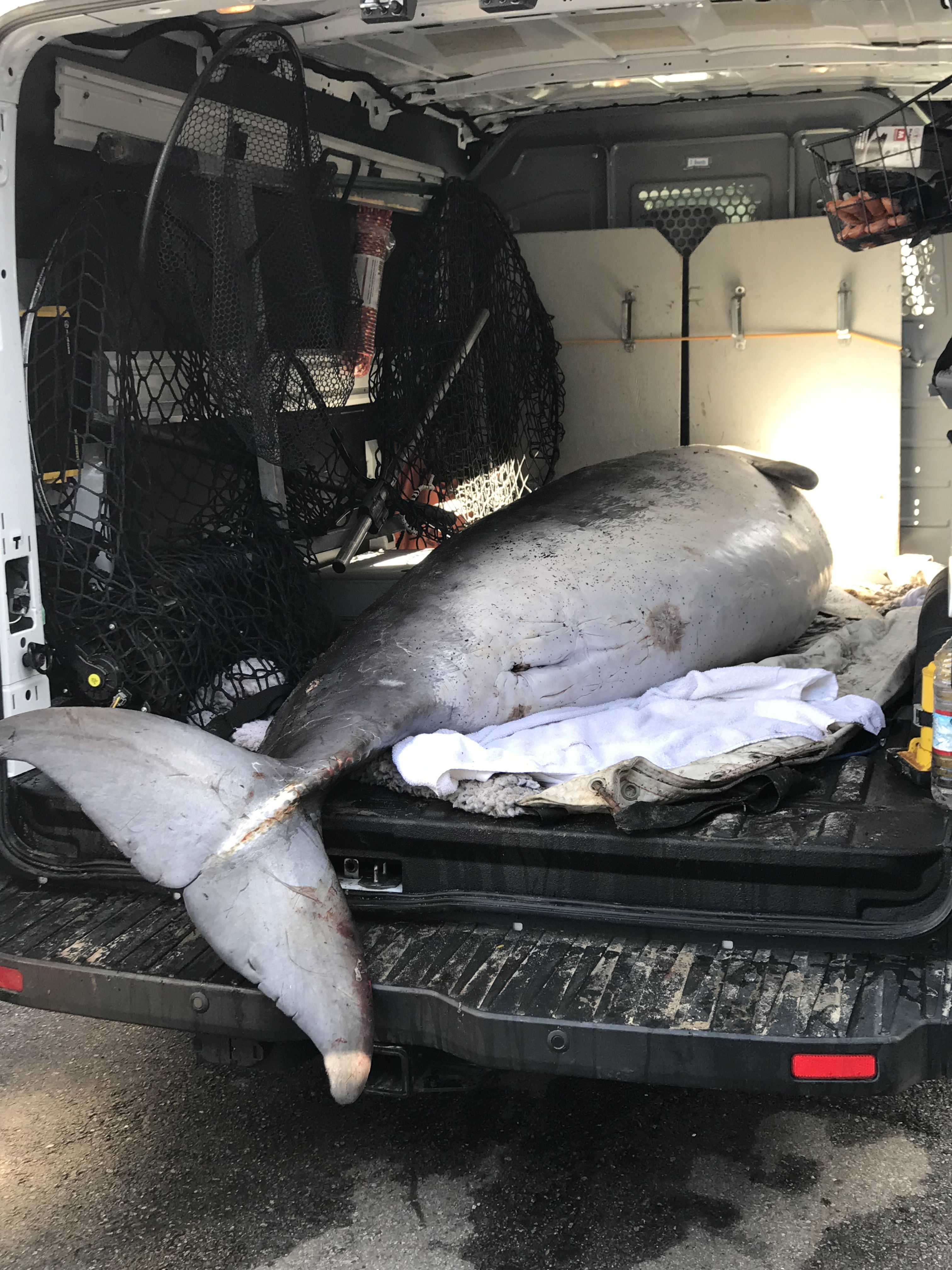California Wildlife Center Reponds to Whale Stranding
By Stephany Lewis, DVM, Veterinarian

The Whale stranded on Zuma Beach
Photo by Gaston Otero
In January, CWC’s Marine Mammal Rescue Team, led by Mike Remski, responded to a call about a small stranded whale on Zuma Beach in Malibu. The small whale was an adult female Pygmy Sperm Whale, CWC’s first live Whale stranding response. With the help of a team of volunteers and lifeguards, the animal was moved from the beach to the CWC rescue van for further assessment.
On physical examination, the whale was in good body condition, but had several superficial wounds and abrasions, possibly from being thrown in the rough surf, and an abscess just in front of her fluke, or tail. She also had severe conjunctivitis of both eyes with some corneal lesions. This inflammation of the eyes could have been from either trauma or infection. It was unclear at the time why exactly the whale had stranded. However, these animals do not strand for no reason; single-cetacean strandings usually occur due to injury or severe illness.

The Pygmy Sperm Whale was moved to the CWC rescue van for evaluation
Photo by Jennifer Guess
After consultation with marine mammal experts at the National Oceanic and Atmospheric Administration, as well as veterinarians from Sea World San Diego, the closest facility capable of rehabilitating a marine mammal of this size and only one within transport range, the difficult decision was made to humanely euthanize the Whale. Pygmy Sperm Whales are rarely rehabilitated successfully, at least partially because these deep-diving cetaceans do not fare well when being housed in shallow pools for extended periods of time. Additionally, for an adult whale to strand severe illness is assumed, making the prognosis for a full recovery very poor.
The whale was humanely euthanized at Zuma beach with a combination of intravenous anesthetic drugs, administered in a vein just in front of the fluke. Her remains were sent to the Natural History Museum of Los Angeles for necropsy, and to be used for future museum exhibits.
